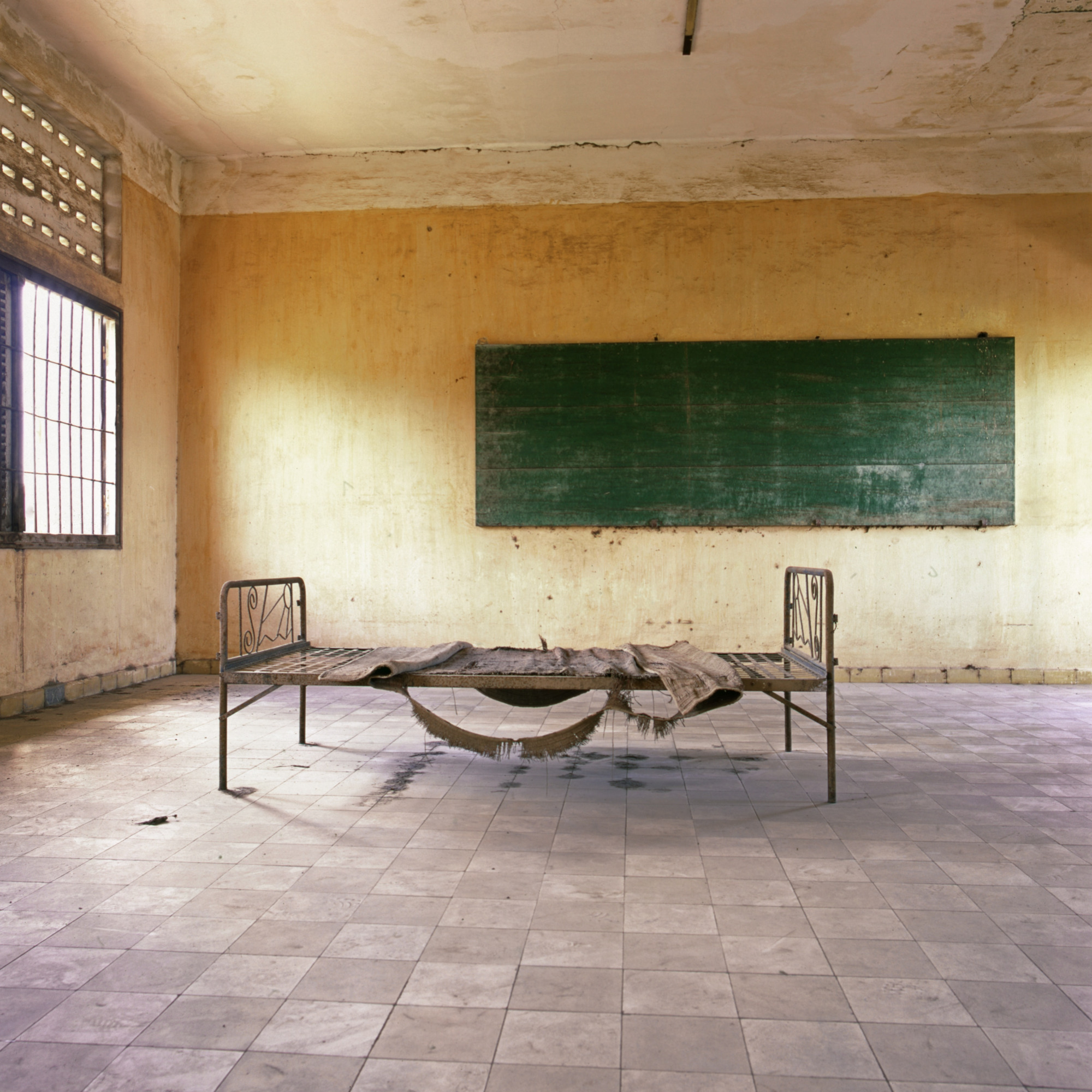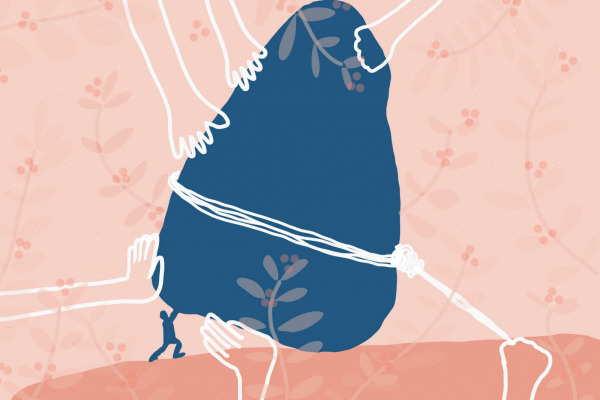電子報
廢死聯盟說的話,是為《廢話》。
在2010年的死刑爭議裡,我們受封為「最邪惡的人權團體」,我們的主張,看起來確實狗吠火車,所以《廢話》也就是「吠話」。知其不可而吠之,汪汪!《廢話電子報》於2012年2月首次發刊,每個月發行的廢話電子報是廢死聯盟實踐與社會溝通的方式之一,我們期許自己用淺白、易懂的文字,透過定期的發刊,持續跟社會對話。
Prohibition of Torture and Ill-treatment in the Context of a Death Penalty
Pavel Doubek(Post-Doctoral Scholar, Academia Sinica)

There is a clear trend in international law towards the abolition of the death penalty.[1] This evolution may be demonstrated on the jurisprudence of the European Court of Human Rights (ECtHR) which was initially resistant to rule on complete abolition of a death penalty[2] but given the legal evolution in Council of Europe Member States recognizes today that the death penalty shall be prohibited in all circumstances.[3]
Notwithstanding this trend within the Council of Europe, the death penalty has not yet been recognized as impermissible punishment at the universal level. More so, it has not yet become considered as an act equated to torture or cruel, inhuman and degrading treatment or punishment (ill-treatment). The question thus remains whether the death penalty is in itself contrary to this prohibition. The United Nations Special Rapporteur on Torture Manfred Nowak raises a critical question in this regard. He wondered as to when corporal punishment such as the amputation of limbs or stroking is absolutely prohibited under international human rights law, how can hanging, the electric chair, execution by a firing squad and other forms of capital punishment ever be justified under the very same provisions?[4]
Examination of the 〝Suffering Threshold〞
The above is not being said as excluding the application of the prohibition of torture to the death penalty. On the contrary, there are several aspects of the death penalty that could make it equal to torture or some other form of ill-treatment. These are, in particular, (i) prolonged stay at the death row and psychological suffering while awaiting the execution (so-called a death row phenomenon), (ii) mental suffering of relatives altogether with authorities´ failure to notify them in advance about the day and time of execution[5], (iii) cruel and inhumane methods of execution or (iv) inhumane conditions and treatment on death row.
To consider whether the death penalty is contrary to the prohibition of torture and ill-treatment, the alleged ill-treatment must attain a threshold of so-called „minimum level of severity.“ The assessment of this threshold depends on all the circumstances of the case, such as the duration of the treatment, its physical or mental effects and, in some cases, the sex, age and state of health of the victim.[6]
Although some execution techniques such as the use of lethal injection[7] or execution by firing squad[8] have not been in themselves regarded as torture or ill-treatment, it had been previously determined that some other methods (in particular, stoning to death or gas asphyxiation) do reach the suffering threshold of absolutely prohibited acts. Moreover, a capital punishment could be a legal barrier for the expulsion of aliens to countries where they may be subjected to the death row phenomenon (non-refoulement principle).[9]
Despite the need to consider all circumstances of a particular case, there are factors that likely reach the said threshold, such as prolonged stay on a death row including intense fear and mental suffering, poor material conditions in a prison cell, a humiliating attitude of prison guards, disability or other vulnerability, absence of medical assistance, etc.
Psychological anguish of a prospect of the death penalty?
While staying on death row in the face of oncoming execution increases a level of mental suffering, it is debatable whether a fear of probable execution could in itself reach this threshold, let alone situation when a person has not yet been physically detained or handed to respective authorities.
This puzzle was answered by the ECtHR in Al-Saadoon and Mufdhi case (refoulement of applicants from the United Kingdom to Iraq). The Court has recognized that the death penalty involves physical pain and intense psychological suffering. The Court has further underscored that “judicial execution involves the deliberate and premeditated destruction of a human being by the State authorities” and as such “negates fundamental human rights." Against this background, the ECtHR concluded that well-founded fear of execution caused the applicants intense psychological suffering which has constituted inhuman treatment contrary to the European Convention on Human Rights (Article 3).
Conclusion
Acts of torture and other forms of ill-treatment are absolutely prohibited under international law. Convention against Torture clarifies that „no exceptional circumstances whatsoever, whether a state of war or a threat of war, internal political instability or any other public emergency, may be invoked as a justification of torture.“[10]
As the death penalty is commonly associated with intense mental suffering, let alone physical pain, it naturally involves the issue of ill-treatment – if not torture, at least cruel, inhumane or degrading treatment. To sum up, it is very problematic under the current international law to find many supporting arguments in favour of the death penalty.
[1] United Nations General Assembly, Report of the Special Rapporteur on torture and other cruel, inhuman or degrading treatment or punishment, Manfred Nowak, 14 January 2009, A/HRC/10/44, paras 30-34.
[2] European Court of Human Rights (ECtHR), Öcalan v. Turkey, 12 May 2005, Application No. 46221/99, paras 164-5.
[3] ECtHR, Al-Saadoon and Mufdhi v the United Kingdom, 4 October 2010, Application No. 61498/08, para 120.
[4] Supra note 1, para 38.
[5] See, for example, Human Rights Committee, Mariya Staselovich vs Belarus, 3 April 2003, Communication No. 887/1999, para 9.2.
[6] Supra note 3.
[7] See, for example, Human Rights Committee, Kindler v. Canada, 30 July 1993, Communication No. 470/1991, para. 15.
[8] Supra note 5.
[9] ECtHR, Soering v the United Kingdom, 7 July 1989, Application No. 14038/88; ECtHR, Einhorn v France, 16 October 2001, Application No. 71555/01.
[10] United Nations Convention against Torture and Other Cruel, Inhuman or Degrading Treatment or Punishment, Article 2 para 2.



